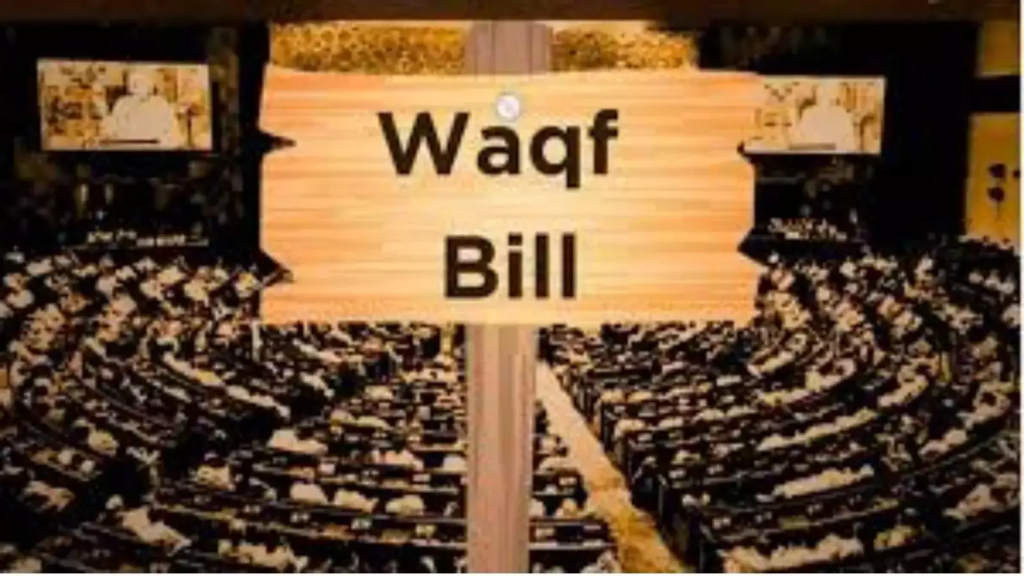Rehan Khan
The Waqf (Amendment) Act, 2025 officially came into effect on 8th April 2025, following a notification published in The Gazette of India. The Ministry of Minority Affairs announced that the Central Government has exercised its powers under Section 1(2) of the Act to appoint April 8, 2025, as the date of commencement.
The notification reads: “In exercise of the powers conferred by sub-section (2) of section 1 of the Waqf (Amendment) Act, 2025 (14 of 2025), the Central Government hereby appoints the 8th day of April, 2025 as the date on which the provisions of the said Act shall come into force.”
President Droupadi Murmu gave her assent to the Bill on April 5, 2025, a day after it was passed in the Rajya Sabha post-midnight on April 4 with 128 members voting in favour and 95 against. The Lok Sabha had cleared the Bill in a similar late-night session on April 3, with 288 votes in support and 232 opposing it. The BJP-led NDA strongly supported the Bill, whereas the opposition’s INDIA bloc stood in firm opposition.
Key Provisions and Objectives
The Waqf (Amendment) Act, 2025 seeks to introduce reforms in the management, administration, and oversight of waqf properties governed under the Waqf Act, 1995. Major changes introduced by the amendment include:
- Mandatory digitisation of all waqf property records by state waqf boards and their integration into a centralised portal.
- Time-bound dispute resolution through designated waqf tribunals.
- Regular audits of waqf boards, with provisions for penal actions in case of financial irregularities.
- Changes to local management committees, including representation from donor families and beneficiaries.
- Inclusion of non-Muslims in waqf boards and reservation for women, along with members of the Shia, Pashmanda, and Bohra communities.
- Empowerment of the Centre to frame rules for registration and audit of waqf accounts.
The government has defended the amendment as a move toward ensuring greater transparency, efficient management of waqf assets, and increased revenue generation for the benefit of the Muslim community—particularly women and backward groups. Officials believe that waqf properties, if properly administered, hold enormous potential for generating community-focused welfare outcomes.
However, the constitutional validity of the Act is now under judicial scrutiny. Over ten petitions—filed by politicians, legal activists, and organisations such as the All India Muslim Personal Law Board (AIMPLB) and Jamiat Ulama-i-Hind—have been submitted to the Supreme Court, questioning various provisions of the law.
On April 7, a Bench led by Chief Justice Sanjiv Khanna assured senior advocate Kapil Sibal, representing Jamiat Ulama-i-Hind, that the Court would consider listing the matter. Sources indicate that the batch of petitions is likely to be heard on April 15 or 16, although this is yet to be officially reflected on the Supreme Court’s cause list.
Anticipating potential interim relief, the Centre filed a caveat in the apex court on Tuesday, seeking to be heard before any order is passed in the matter. A caveat ensures that no ex-parte order is issued without hearing the party that has filed it.
The legislation has triggered intense political debate. While the NDA coalition defends the Act as progressive and inclusive, the opposition bloc has decried it as unconstitutional, alleging that it infringes upon the rights of the Muslim community and undermines the autonomy of religious institutions.
Multiple Muslim organisations have joined opposition leaders in expressing concern that the law may lead to undue centralisation of power and interfere with community-driven waqf management practices.

